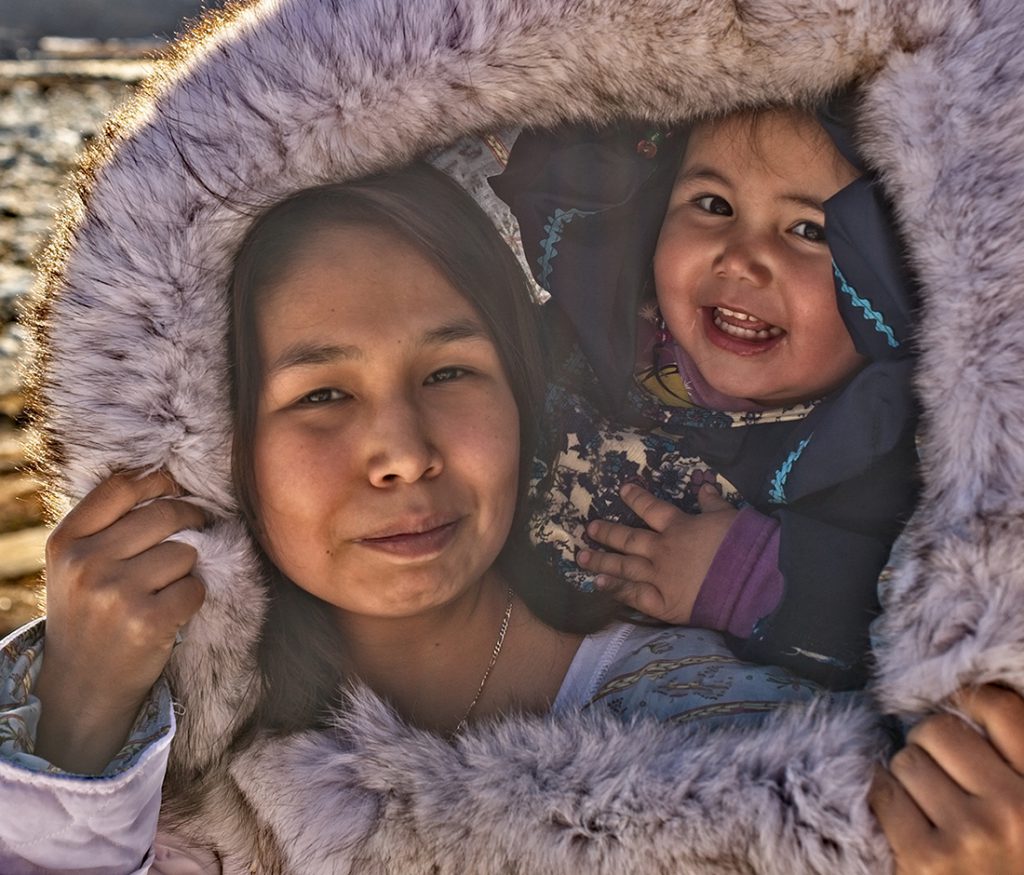
Four UM research projects focused on Inuit, First Nations and Métis health recently received a total of more than $4.4 million from the Canadian Institutes of Health Research (CIHR).
“These studies will advance knowledge in several key areas of Indigenous health,” says Peter Nickerson [B.Sc. (Med.)/86, MD/86], vice-dean research of the Rady Faculty of Health Sciences.
“Most importantly, Indigenous research partners and communities are directly involved. These projects reflect Indigenous priorities and integrate Indigenous knowledge and healing practices.”
A grant of more than $1.9 million over five years will support the development of tools for the wellness and safety of Inuit in Manitoba. The project is co-led by Dr. Josée Lavoie, professor of community health sciences and director of Ongomiizwin – Research, with partners that include the Manitoba Inuit Association and six Inuit Elders, including Jack Anawak, Levinia Brown, Grace Clark, Maata Evaluardjuk-Palmer and Michael Kusugak.
The project builds on a previous study of service use by the thousands of Inuit from Nunavut who come to Manitoba each year to access health care and other services. “The new study focuses on how Inuit concepts of wellness can be used to create healing programs in Winnipeg that reflect Inuit values,” Lavoie says.
The researchers plan to implement several mental health and wellness programs, such as one for Inuit families involved with Child and Family Services.
A five-year grant of more than $1.4 million was awarded to a study of the dental microbiome associated with the severe form of early childhood tooth decay that affects many First Nations and Métis preschoolers.
Robert Schroth [DMD/96, M.Sc./03, PhD/11], professor of preventive dental science and re-searcher with the Children’s Hospital Research Institute of Manitoba, co-leads a team with partners that include the First Nations Health and Social Secretariat of Manitoba and the Manitoba Métis Federation.
“Our hypothesis is that limited access to oral health care, along with poverty, lack of clean water, food insecurity and loss of traditional diet, leads First Nations and Métis children to carry higher oral levels of harmful microbial strains that increase their risk for tooth decay,” says Schroth.
A team co-led by Julia Uhanova [M.Sc./01, PhD/10], associate professor of internal medicine, and Byron Beardy of the Four Arrows Regional Health Authority received $573,751 for a two-year study.
They will investigate the effect of a traditional Indigenous land-based diet on non-alcoholic steatohepatitis (NASH), a form of fatty liver disease that has a high prevalence in First Nations populations.
“We aim to determine whether First Nations study participants who consume a traditional diet have less NASH, less inflammation, and fewer of the metabolic comorbidities associated with NASH, such as diabetes, than those who consume a Western diet,” Uhanova says.
“We believe the results will help to support First Nations Elders and community leaders in promoting greater food sovereignty and community well-being,” says Beardy.
Dr. Krista Hardy [M.Sc./08], assistant professor of surgery, and her team received $470,475 for a four-year study of incorporating Indigenous healing and wellness practices into a bariatric surgery program.
The team will first engage with Indigenous patients who have undergone bariatric surgery as a treatment for obesity, in order to understand their experiences.
Manitoba’s bariatric program combines surgery with support, education and resources to promote behaviour change. Based on what the researchers learn from Indigenous patients, and with guidance from Elders and healers, they will develop guidelines for integrating Indigenous wellness teachings into the program.
The four Indigenous research projects were among 19 UM studies that received CIHR project or bridge grants in the Spring 2021 funding competition, for a total of more than $12 million in support.
Read more about the research teams and their studies: bit.ly/CIHRspring2021.
BY RADYUM STAFF
